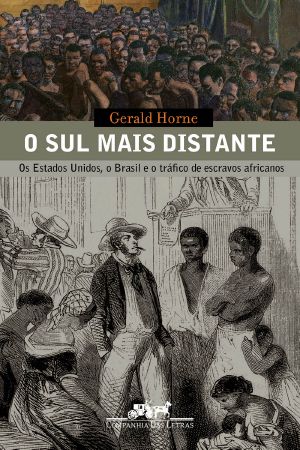O Sul Mais Distante

- Authors
- Horne, Gerald
- Publisher
- Companhia das letras (www.companhiadasletras.com.br)
- Tags
- history
- ISBN
- 9788535916805
- Date
- 2014-06-12T22:00:00+00:00
- Size
- 2.35 MB
- Lang
- pt
View the Table of Contents. Read the Introduction.
"A well-researched, skillfully-written, and carefully-argued diplomatic history examining connections between the United States, Brazil, Africa, and Europe as they relate to the transatlantic slave trade. Horne sheds considerable light upon the ideas, ruminations, and practices of U.S. nationals in their interactions with and encounters of Brazil over the question of slavery, especially from the mid-nineteenth century on, and makes a valuable and important contribution to our knowledge and understanding of (American) hemispheric relations and trajectories, both eventual and potential."
Michael A. Gomez, editor of Diasporic Africa: A Reader
An important study that starts with the proposition that what happens abroad affects developments in the United States. For the first time we are made aware of the extensive contacts between pro-slavery forces in the United States in the years after the abolition of the slave trade and the promoters of slavery in and the slave trade to Brazil and elsewhere.
Richard J. M. Blackett author of Divided Hearts: Britain and the American Civil War
During its heyday in the nineteenth century, the African slave trade was fueled by the close relationship of the United States and Brazil. The Deepest South tells the disturbing story of how U.S. nationals - before and after Emancipation -- continued to actively participate in this odious commerce by creating diplomatic, social, and political ties with Brazil, which today has the largest population of African origin outside of Africa itself.
Proslavery Americans began to accelerate their presence in Brazil in the 1830s, creating alliances there - sometimes friendly, often contentious - with Portuguese, Spanish, British, and other foreign slave traders to buy, sell, and transport African slaves, particularly from the eastern shores of that beleaguered continent. Spokesmen of the Slave South drew up ambitious plans to seize the Amazon and develop this region by deporting the enslaved African-Americans there to toil. When the South seceded from the Union, it received significant support from Brazil, which correctly assumed that a Confederate defeat would be a mortal blow to slavery south of the border. After the Civil War, many Confederates, with slaves in tow, sought refuge as well as the survival of their peculiar institution in Brazil.
Based on extensive research from archives on five continents, Gerald Horne breaks startling new ground in the history of slavery, uncovering its global dimensions and the degrees to which its defenders went to maintain it.